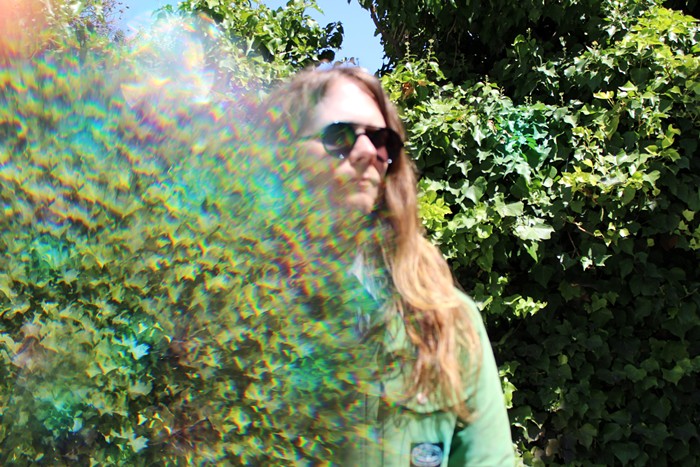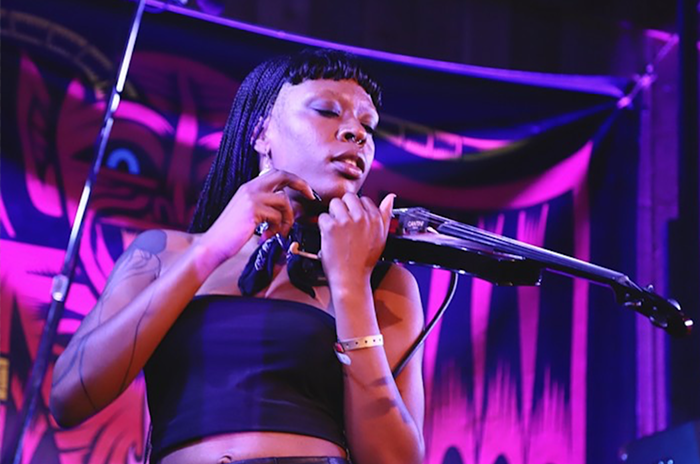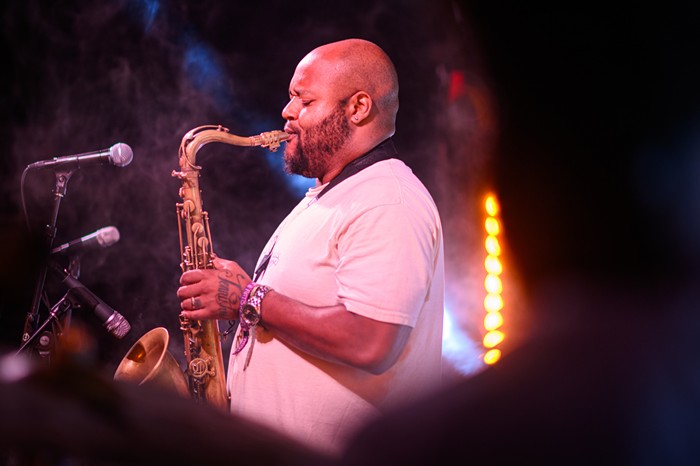THERE WAS NO indication on either of Tu Fawning's previous releases—the 2008 Secession EP, or 2010's full-length, Hearts on Hold—that the band had higher heights to scale. Those records sounded like the products of a vision fully realized—one initially forged by Corrina Repp and Joe Haege, then coalesced via an expanded lineup with multi-instrumentalists Liza Reitz and Toussaint Perrault.
But Tu Fawning's second full-length album, A Monument, is a shockingly great achievement, even for a band previously in command of assurance and clarity. It's not simply a step above the four-piece's previous work; it's a daring, confounding, unusual rock record that ignores genre rules and pop-song conventions in favor of eliciting pure drama from its nine tracks by any means necessary. There are echoed drums and horror synths; gliding, ghostly choirs and fuzzed-out guitars; songs that could be softly sung to bury the dead, and others that could raise them from their graves. It's the band's most immediate work to date, as well as their most emotionally complex.
On the phone from Vienna during their recent European tour, Repp says that the new record was the product of a unified band, something that was still being consolidated on their previous album. "With Hearts on Hold, we barely scratched the surface," she says. "This record, everyone came up with their own parts, and we were all together completely in the recording process. Five of the songs we recorded all of our basic parts live—and it was really, really satisfying to do that as band, because Hearts on Hold was so piecemeal over the spread of a few months that it seemed like we were never in the same room together.
"With this record," she continues, "we knew that was going to be the biggest difference—for all of us to be as much a part of it as possible. Also, it just feels better to be like, 'Yeah, let's do this together.' It gets to that point that we're all getting older and not making a ton of money at it, so we might as well be creatively fulfilled and feel great about what we're doing. Ultimately, it's pretty exciting and challenging to have a collaboration. And trying to be adult about it and doing the best that we can without having our egos crushed. It helps again that we're all in our 30s—hopefully the communication gets a little bit better as adults."
For her part, Repp mostly stepped out of the band's revolving lineup of drummers (Repp, Haege, and Perrault all take turns behind the kit) in order to focus on vocal melodies. It's her voice you hear throughout almost all of A Monument, giving the record a sense of unity and directness. "I think there was something really cool about the record being written relatively fast; that makes it feel really cohesive to me, at least in terms of lyrics and some of the storytelling. It definitely has a thread.
"I think part of me for a long time was really—not afraid of writing a pop song, but... yeah, I was pretty anti-pop song," Repp laughs. "But part of me wanted to attempt that with this record. I wanted to make something a little more tangible for people. It's funny, because reading reviews and stuff now, I still feel like everyone is like, 'What genre is this? I don't know what kind of music they're making. How can you define this?' Even after our attempts to write some pop songs, it still is really weird to people."
Repp initially shied away from explicitly writing about herself in Tu Fawning material. "I released my last solo record in 2006, and it was so extraordinarily personal. And no one really heard it," she says. "I felt really crushed by that, by being so vulnerable and open. So when Joe and I started working on stuff for Tu Fawning, I was like, I do not want to write about myself in any way, shape, or form. I want to write fictional, character-based songs. And so that's kind of a lot of what [Hearts on Hold] was for me.
"But after touring for a year with those songs, I really started to miss—and it's not like they weren't emotional for me, because they were—but I definitely really started to miss that real sentimental, emotional connection to songs," Repp continues. "So I purposefully just kind of opened myself back up and decided to go for it a little more on a personal level. A lot of the record is about relationships and humanity, and it is definitely still a little bit of a dark record."



















